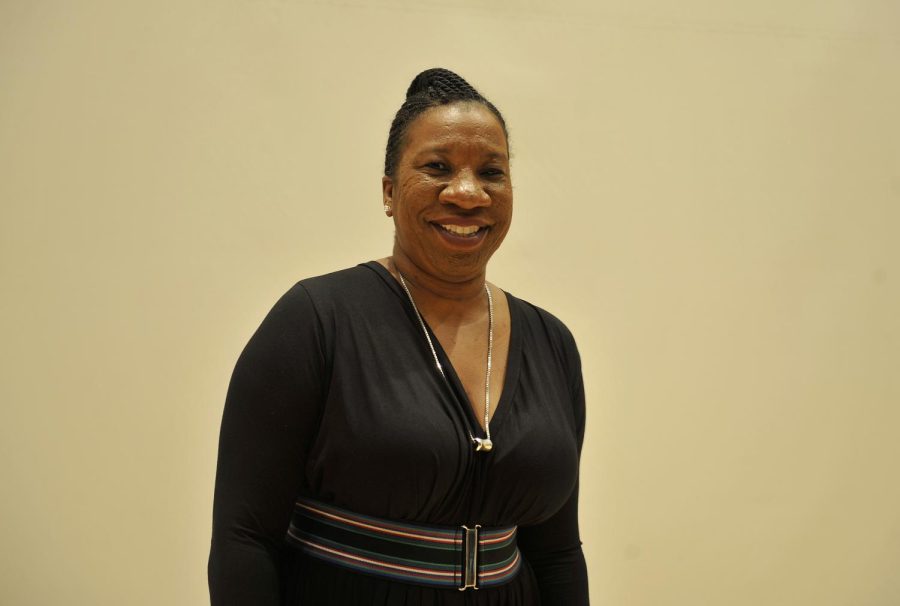#MeToo founder Tarana Burke speaks at Kent State
When Tarana Burke joined the 21st Century Youth Leadership Movement to improve and pass on her leadership skills, she had no idea it would lead her to starting her own movement.
During her leadership training, one of Burke’s mentees opened up to her about her sexual assault experience, having no idea Burke was a sexual assault survivor.
“When she came and told me all the stuff her mom’s boyfriend did to her, I shut her down,” Burke said. “I told her ‘go talk to another counselor’ and I broke her heart.”
Burke was not ready to accept herself as a survivor, let alone help someone else. She knew the second she walked away that she had made a mistake and that all her mentee wanted to hear was, “This happened to me, too.”
That moment inspired her to create the #MeToo movement.
Burke spoke at Kent State Monday to students and faculty about the creation of the movement and inspire them too.
Burke credits strong, black female feminists as her inspiration to starting her movement and being an organizer, such as her mother.
“My family was radical, it was set in stone for me to be militant,” Burke said.
Burke grew up with culture influences and historical influences and used that to help make her community better.
“I made a decision when I was 14 to dedicate my life to service. I dedicated myself to those black and brown girls,” Burke said.
The success of the #MeToo Movement has been overwhelming for Burke.
“I cannot believe people still wanna hear all this stuff,” Burke said.
With the progression of the movement, Burke said there’s still more work to be done, such as changing the negative traction it gets.
“People blame #MeToo for everything,” Burke said. “But for those of us that know about sexual assault, know that the cultural shift has not happened.”
Burke went on in her speech to challenge administration at Kent State to channel themselves as healers of the community to be bold.
“Community bonding has community solutions and you (administration) should be a part of the solutions,” Burke said.
Burke believes that the power of the the movement can hold the community together.
“That’s why I’m so desperate to change the narrative about the #MeToo movement before it’s too late,” she said. “Folks think it’s about taking down powerful white men and tearing down their name, but they’re wrong.”
Burke said it is important to take back control of the narrative for the #MeToo movement and focus on the survivors.
“This is a survivors movement,” Burke said. “For all women of all races, for victims of all genders. This is not a hateful thing.”
Sophomore sociology major and women’s studies minor Allison White attended the speech and was amazed by the connection that the #MeToo movement has with college campuses and fraternity life.
“She spoke a lot about accountability with fraternities and athletes and that really touched me,” White said. “So often we let young men get away with sexual assault because of being ‘educated’ and enough is enough.”
White volunteers at the Kent State Women’s Center and values the importance of sharing experiences with victims.
“The main thing I grabbed from her speech was that it is OK to connect to a victim,” White said.
Burke said the positive thing about the movement is it takes away that isolation of sexual assault.
“As pervasive as sexual violence is, it is the most isolated thing to go through,” Burke said. “Something about the act of it that makes you feel so alone, weak and vulnerable.”
Burke ended her speech with a call to action.
“If you are ready to do what is needed to end sexual violence, I leave you with these last two words: #MeToo.”
Erica Carter is the Diversity reporter. Contact her at [email protected].



